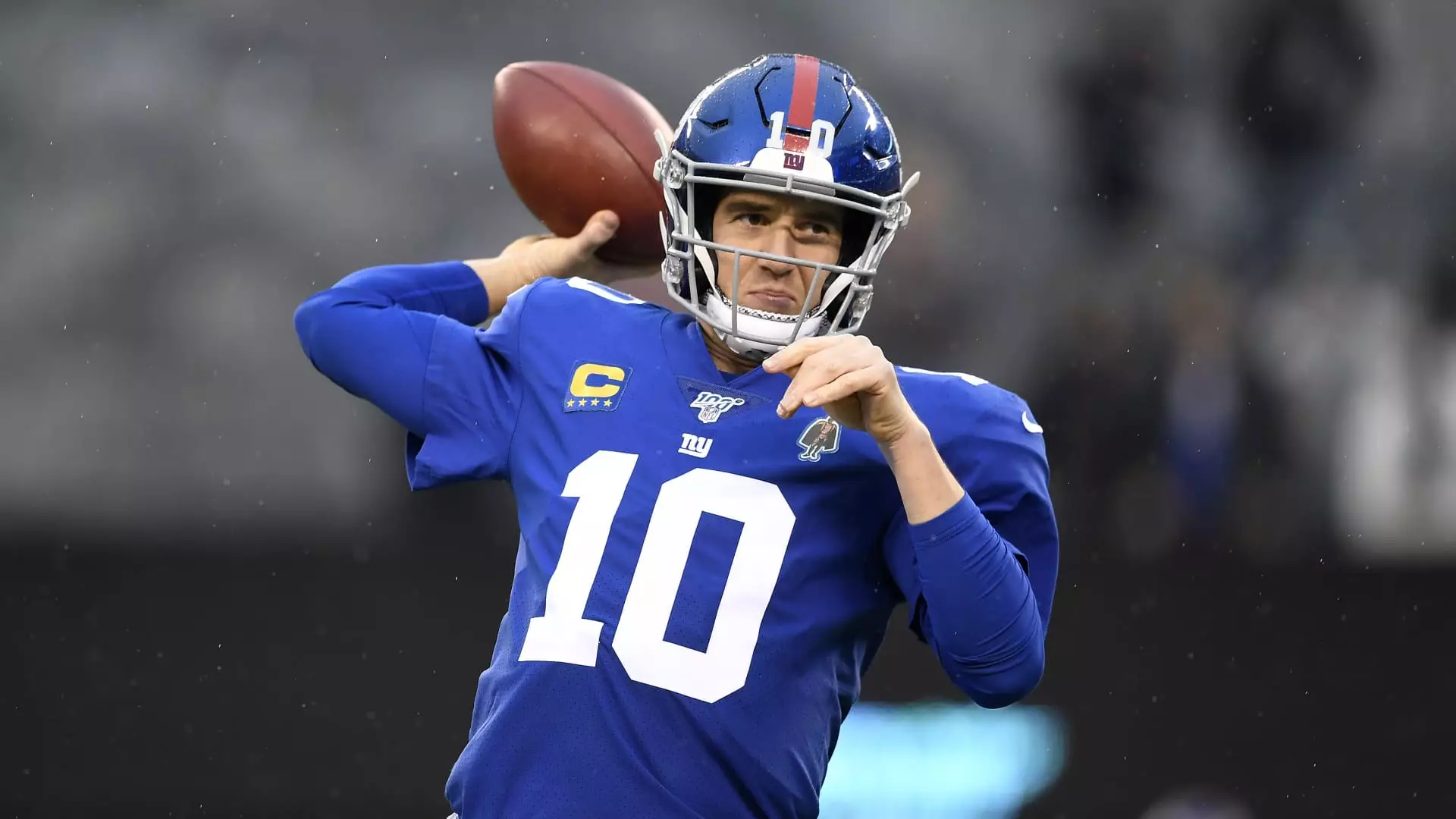In a landscape shaped by skyrocketing franchise valuations, the idea that former athletes like Eli Manning could step into ownership roles seems increasingly illusory. Manning’s recent admission that he cannot afford a minority stake in the New York Giants reflects a broader, unsettling truth about the current state of sports and financial markets. It reveals a stark gap between the romantic notion of ownership—of athletes transitioning into business moguls—and the reality of exorbitant prices that have rendered that dream inaccessible to even the most financially savvy elite. Valuations exceeding $8 billion for NFL teams are not just numbers; they demonstrate an alarming inflation driven largely by speculative investment, media rights, and franchise branding that now serve more as financial instruments than sources of community pride or sporting excellence.
This inflated market distorts public perception, suggesting that team ownership is a rung on the ladder only accessible to billionaires and institutional investors. The myth that a former player, who dedicated his prime years to the sport, might possess the means to buy a stake is increasingly disconnected from economic reality. As Manning rightly observes, a 1% stake valued at $10 billion is not only impractical but absurdly detached from the financial capacities of most individuals. This creates a troubling narrative: sports ownership, once a symbol of achievement and community involvement, risks becoming a playground exclusively for the wealthiest and most powerful.
Agendas Masked as Investment Opportunities
Behind the facade of sports investing lies a complex web of interests that threaten to undermine the integrity of leagues like the NFL. Private equity firms and billionaires’ investment ventures are reshaping the ownership landscape, shifting control away from passionate communities to faceless financial giants. The recent trend of partial ownership—such as the Eagles’ minority stake sale or the 6.2% stake in the 49ers—serves as a cover for the pursuit of quick profits rather than a genuine desire to foster local engagement or sustainable growth.
Manning’s mention of conflicts of interest, coupled with the fact that ownership stakes can influence broadcasting rights, player negotiations, and league policies, highlights a deeper concern: that sports franchises are increasingly viewed as commodities rather than cultural institutions. As a center-wing liberal, I see this as symptomatic of a broader societal shift towards valuing profit maximization over community stewardship. Ownership structures that prioritize financial gain threaten the essence of sports as communal, unifying entities—transforming them into financial assets that magnify inequality and promote the interests of a privileged few.
The Fantasy of Athlete-Owners and the Reality of Exclusion
The romantic image of an athlete-turned-owner has been fueled by stories of success, wealth, and post-career reinvention. Yet, Eli Manning’s candid refusal exposes a harsh truth: that the barriers to ownership have become too high, too opaque. This disconnect reinforces the narrative that sports, despite their cultural significance, are now playgrounds for the ultra-rich. The idea that a retired player, who once sacrificed blood, sweat, and tears on the field, can purchase even a small piece of their former team is, at best, wishful thinking.
Furthermore, Manning’s decision underscores how economic constraints and the shifting priorities of leagues and owners limit opportunities for former athletes—often under a veneer of opportunity hides a form of systemic exclusion. The league’s recent loosening of ownership rules to include private equity firms has only exacerbated this divide. It sends a message that sports franchises are increasingly transactional, governed by investments and valuations rather than passion or community connection. This shift threatens to further alienate fans, players, and smaller stakeholders, as the scale of wealth consolidates control into a handful of elite investors.
The Cultural Shift: From Community Icons to Market Commodities
At its core, the widening economic chasm in sports ownership reflects a deeper societal issue: the commodification of what was once a communal passion. The NFL, often lauded as America’s most beloved sport, now operates within a marketplace where franchises are valued for their potential to generate profits rather than their roles as cultural touchstones. The sale of Lakers’ majority stake at a valuation far surpassing previous estimates exemplifies how franchises are valued more for their branding power than their sporting legacy.
This transformation inherently saps sports of their authentic identity. Instead of being rooted in local pride and sporting excellence, teams become symbols of wealth accumulation. The notion that ownership is a right reserved for a select few illustrates a disturbing trend: the marginalization of players, fans, and smaller stakeholders in favor of big-money interests.
The recent trend of inflating franchise valuations reveals a fragile economic bubble—one that risks bursting if market speculation continues unchecked. The increased involvement of private equity firms not only consolidates control but also raises serious questions about the future governance of these institutions. Are sports teams becoming mere commodities in an arena where wealth—rather than character, community, or athletic achievement—is the ultimate currency? As long as valuations remain artificially inflated, the dream of democratizing sports ownership will remain out of reach for many and will serve only to deepen economic divides within the industry.


Leave a Reply